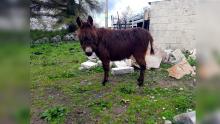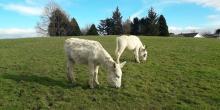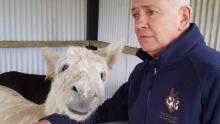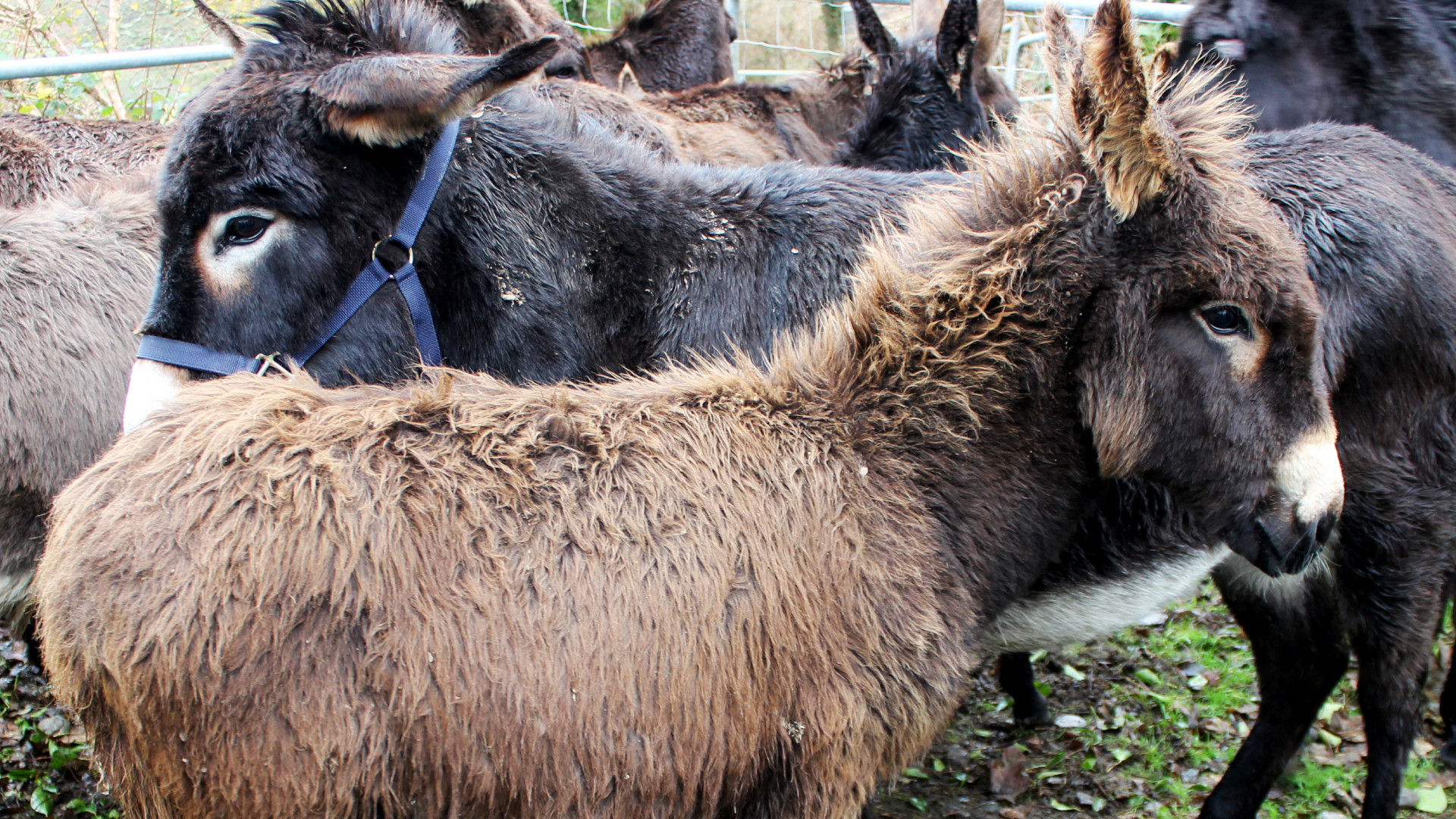
The demand for donkey welfare services has put pressure on our sanctuary in recent years, and now we're focused on long-term solutions.
Having given sanctuary to thousands of donkeys, our resources have been stretched to unprecedented levels and we now have almost 1,800 donkeys and mules in our care.
As well as the two farms we own, we have rented additional farm facilities, and opened holding bases across Ireland, to accommodate the increasing number of abandoned, unwanted, and neglected donkeys and mules. We also manage a network of over 300 guardian homes across the country.
Our welfare team has been expanded and covers the Republic of Ireland and Northern Ireland and last year we undertook over 1,600 welfare visits.
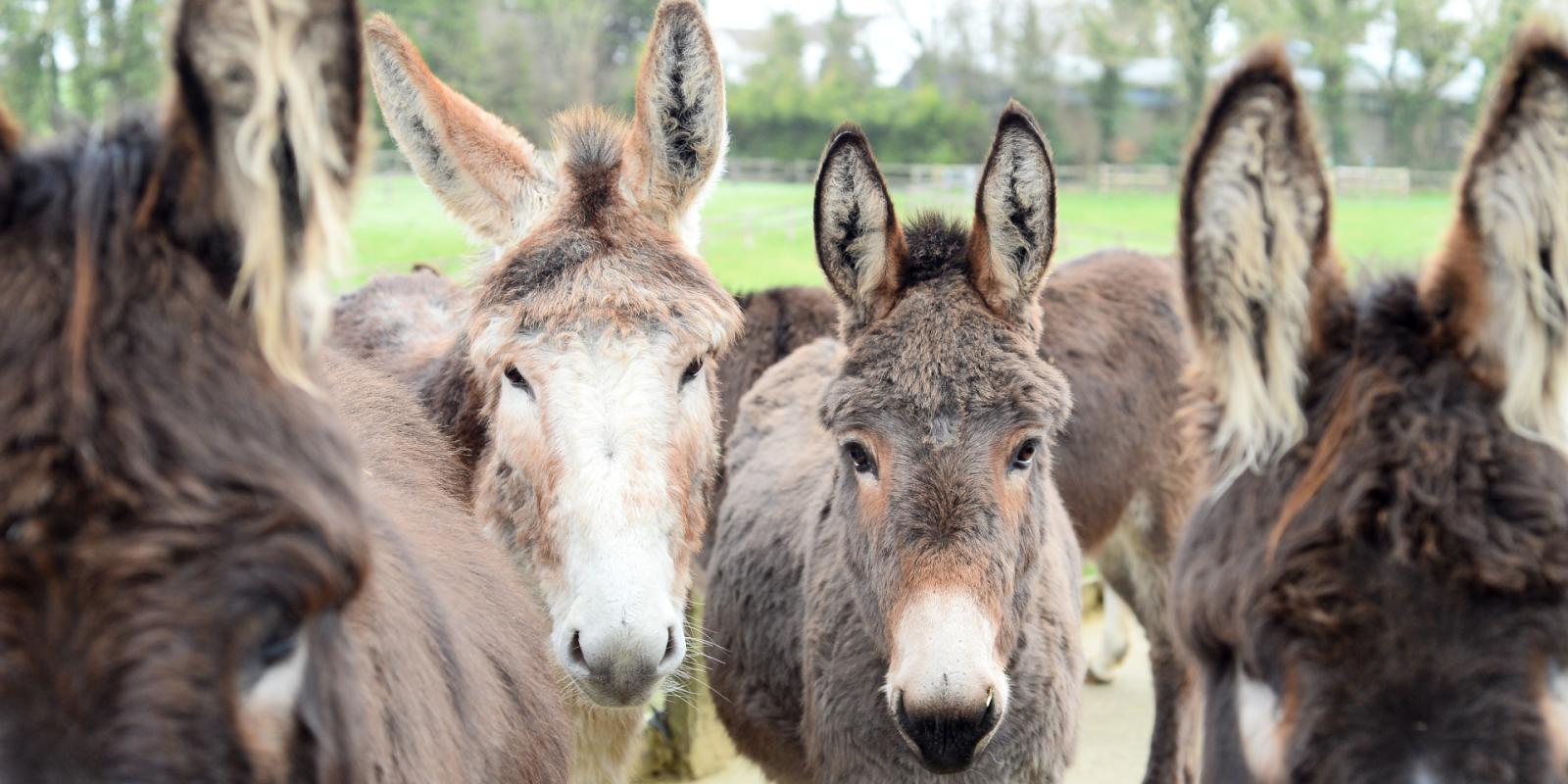
We have over 1,700 donkeys and mules in our care.
Our work in the community
We continue to work harder than ever in the community. This includes:
- Helping owners to access welfare services
- Rehoming donkeys into private homes and our partner sanctuaries
- Providing advice and education to owners about donkey health and welfare.
While we succeed in finding good homes and solutions for many animals – last year we rehomed over 150 donkeys in the community - sadly, the prospects for a good, onward life for some of the donkeys and mules we encounter are poor.
Good homes with the right infrastructure are in short supply and, of course, recent times have put immense pressure on people’s personal circumstances.
We work around these barriers with tenacity and compassion, helping owners and other equine professionals to reach decisions that have the donkeys’ best interests at heart.
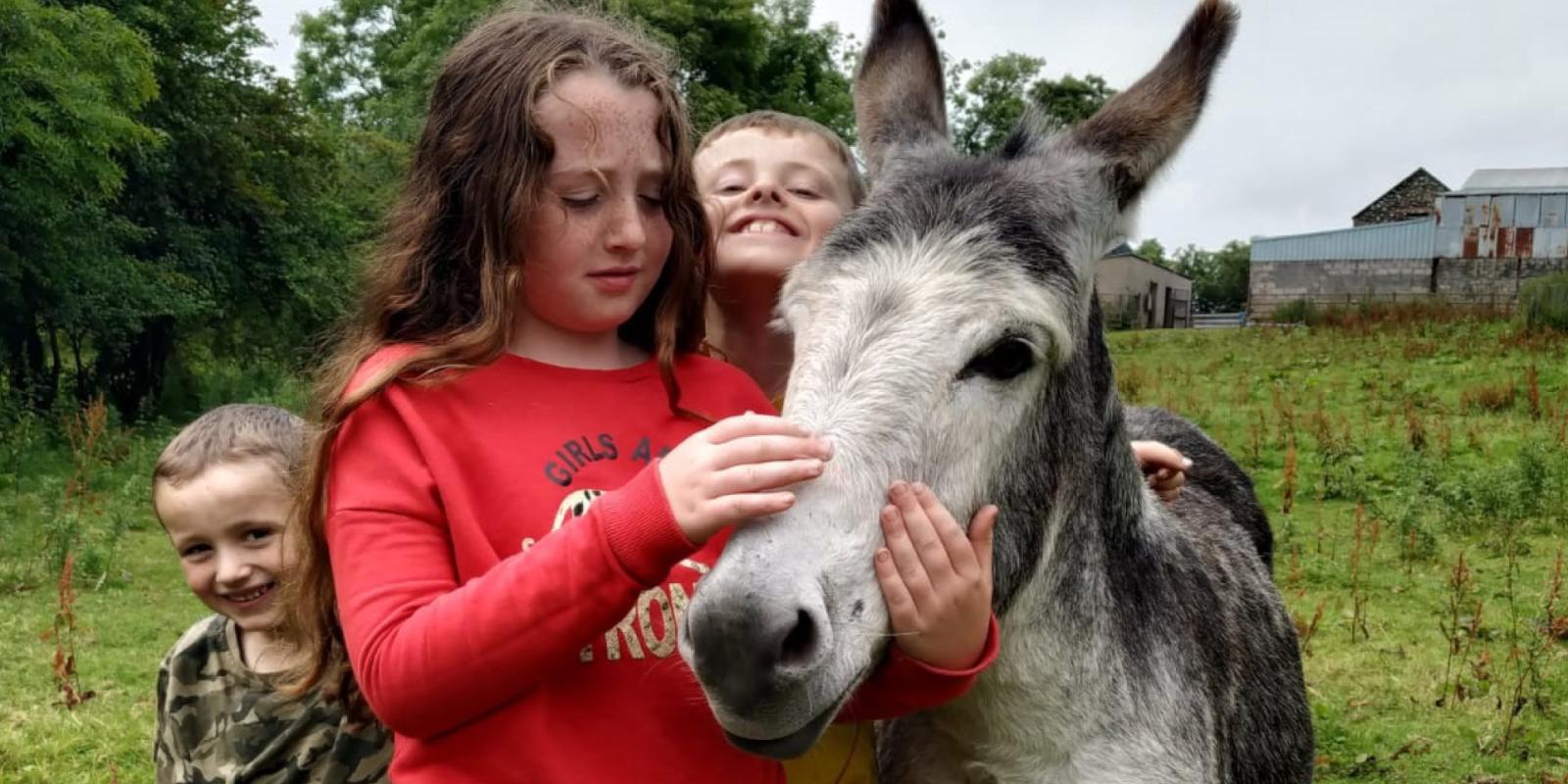
Fiona was rescued and rehomed days before she was due to be euthanised.
What is the long-term solution?
While sanctuary and rehoming provides short-term solutions for individual animals, the only sustainable way of improving donkey welfare, is through education, awareness, and effective support in the community.
We have also modified our policy on relinquishment, which means that, when possible, we can only create capacity for the most vulnerable donkeys and mules. This is why many of the stories of donkeys coming into our sanctuaries featured foals and their mothers, or pregnant mares.
Unplanned breeding has not only led to an 'oversupply' of donkeys in Ireland but also health issues that mean donkeys suffer from chronic, long-term illnesses.
We work hard with our community partners to clamp down on unplanned and irresponsible breeding, to decrease the numbers of donkeys and mules that need our help in the longer term.
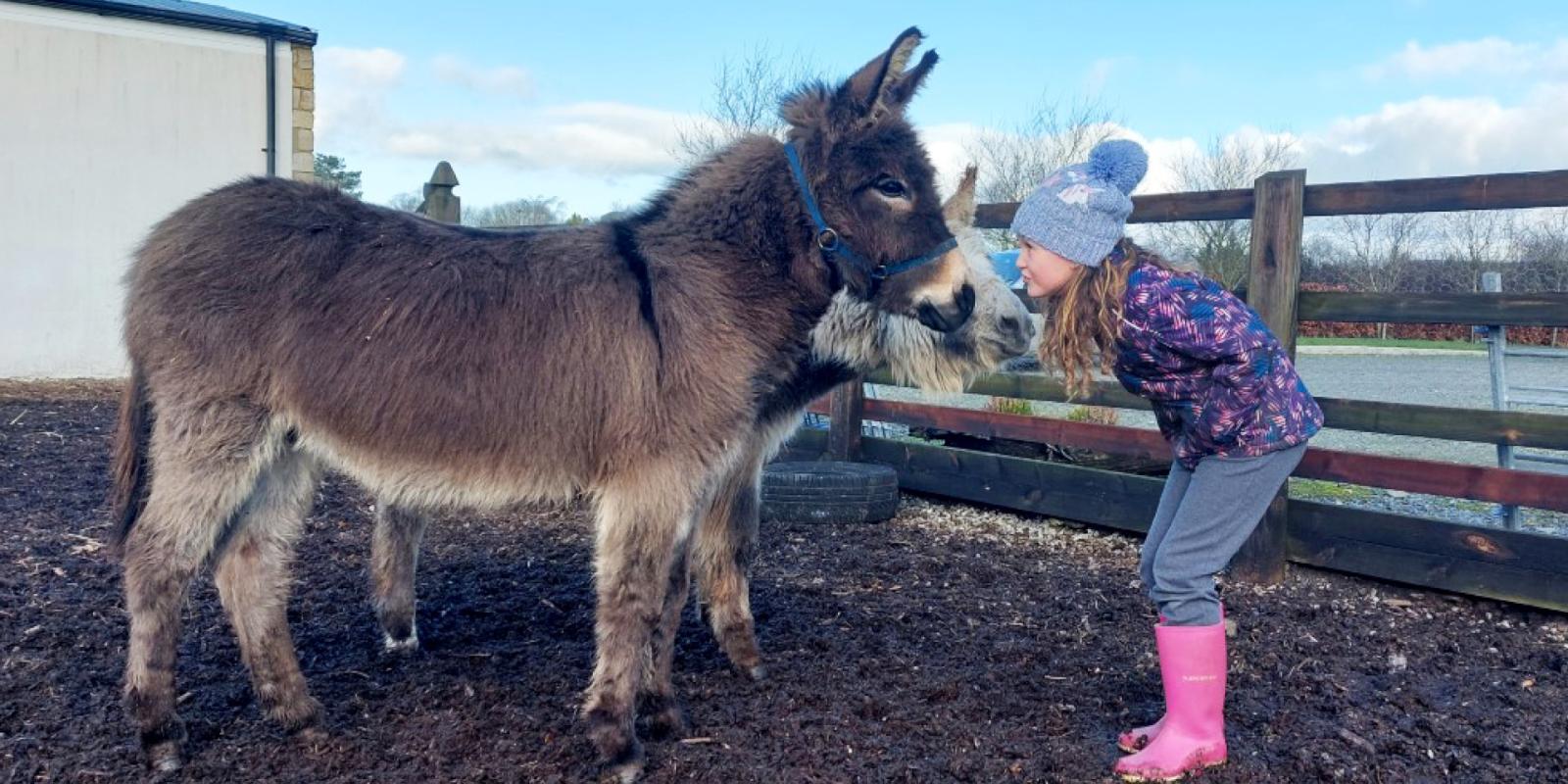
One of our wonderful Guardian homes in County Cavan with rescued donkeys Tom and Jerry.
How you can help
Here are three simple ways you can help us tackle the donkey welfare crisis:
“I saw a donkey that’s in poor health”
Contact the Department of Agriculture, Food and the Marine's national helpline, the ISPCA's national cruelty helpline, your local authority, or local Garda station.
“I’m a donkey owner and I need support”
Our welfare team can be contacted on 022 49013 or submit an enquiry form for information and support accessing critical donkey welfare services such as farriery and dentistry, as well as advice on castration and other veterinary services.
“I’m thinking about getting a donkey”
Please contact our welfare team to find out more about our rehoming scheme before you contact a breeder or go down the private ownership route.
Support us
Finally, our welfare and farm teams continue to work together to improve donkey welfare throughout Ireland, and this would not be possible without the support we receive.
A donation of €10 will help us respond to a welfare call and support a donkey in need.

